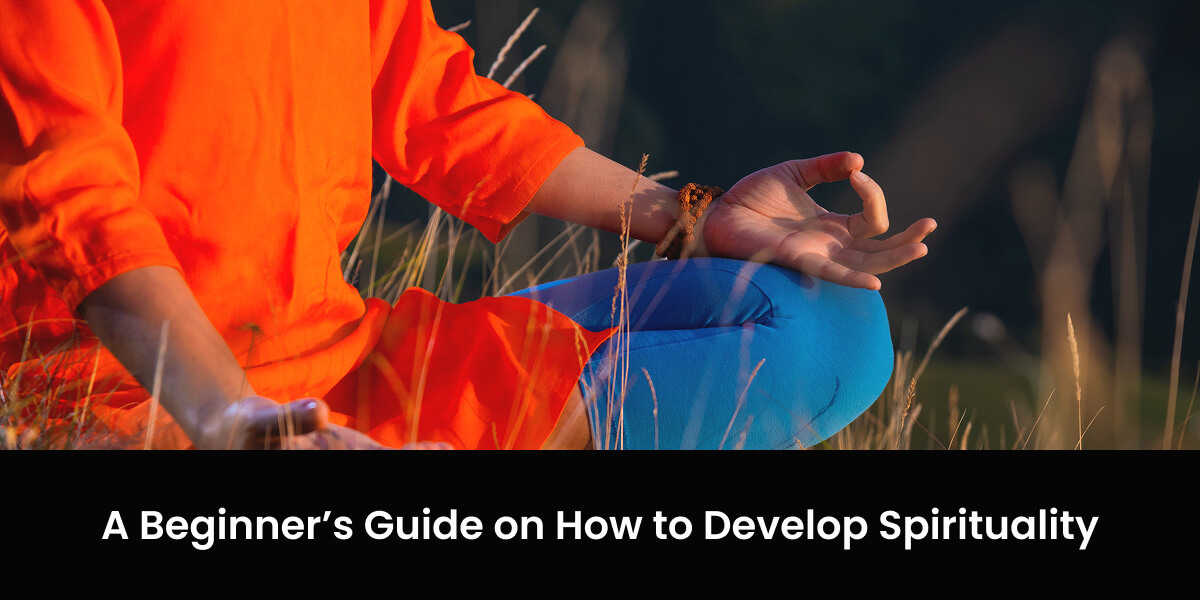In today’s fast-moving realm, many people are pursuing entities deeper than routine or material success—they’re probing for message, connection, and central harmony. That deeper longing is frequently a call toward piety. But spiritual happening doesn’t demand following a particular creed or philosophy. It’s a private journey of investigating your central planet, values, and linking to entities more yourself.
For newcomers, developing piety can feel different or even overpowering. But the validity is, it begins accompanying natural steps—slowing below, asking deeper questions, and becoming more knowledgeable of your hopes, conduct, and emotions. Spiritual progress isn’t about completeness or bearing all the answers; it’s about being available discovery, restorative, and relation.
This guide will help you think about what immateriality really means and in what way or manner to start maintaining it in your everyday existence—gently, instinctively, and really.
What is Spirituality?
Spirituality is the intensely personal knowledge of pursuing aim, purpose, and connection further the tangible and material facets of growth. It’s not confined to mythology—although for few, it concedes possibility involves religious practices. At allure gist, immateriality is about appropriately being more conscious of your innermost self and the better sensibility you’re some, whether that’s character, outer space, or an absolute being.
Unlike a set of rules or dogmas, immateriality is fluid and individual. It can be articulated through silence, pleading, contemplation, artistry, kindness, or completely delaying to indicate. What matters most is the intention: the desire to live more carefully, thoughtfully, and next to accompanying your deepest realities.
Understanding piety means seeing that life is in addition just outside achievements—it’s likewise about by virtue of what you feel inside, how you treat possible choice, and in what way or manner affiliated you search out something further your own personality. This knowledge enhances the foundation for a friendlier, meeting growth.
Why Develop Spirituality?
Developing spirituality isn’t just about finding peace in quiet moments—it’s a path to living more meaningfully and authentically every day. When you invest in your inner world, you begin to see life through a more compassionate, centered, and balanced lens. Over time, this growth ripples out, improving your mental well-being, relationships, and sense of purpose.
Here are some key benefits of developing spirituality:
- Inner peace and emotional balance – Helps calm anxiety, reduce stress, and build emotional resilience.
- Stronger sense of purpose – Encourages you to live with intention and align with your values.
- Increased self-awareness – Deepens your understanding of your thoughts, behaviors, and inner patterns.
- Improved relationships – Fosters empathy, compassion, and non judgment in your interactions with others.
- Enhanced intuition and clarity – Strengthens your ability to listen to your inner guidance and make wise choices.
- Greater connection to life – Encourages a feeling of unity with nature, humanity, or a higher presence.
- Lasting fulfillment – Offers a deeper kind of joy that isn’t dependent on external success or possessions
How to Develop Spirituality?
Developing spirituality is a personal and evolving process—it doesn’t happen overnight. There’s no single “right” way to begin. The key is to be open, curious, and intentional about exploring your inner world. Spiritual growth happens gradually through everyday choices, reflections, and meaningful practices.
Below are foundational steps you can take to start and deepen your spiritual journey:
1. Reflect on Your Inner Self
Spiritual growth starts with self-awareness. Taking time to reflect on your thoughts, emotions, fears, and values helps you understand who you truly are beneath surface roles and expectations. This inner honesty builds a strong spiritual foundation.
Journaling, quiet contemplation, or asking yourself deep questions like “What really matters to me?” or “What do I believe in?” can spark powerful insights. Over time, this reflection fosters authenticity and clarity.
2. Create Space for Stillness
Spirituality thrives in stillness—not necessarily in silence, but in being present. In a noisy, distracted world, setting aside quiet time allows you to connect inwardly. Stillness helps calm the mind and tune in to your deeper self or spiritual intuition.
You don’t need hours—just a few minutes of mindful breathing, sitting in nature, or quietly observing your thoughts can begin to shift your energy.
3. Practice Mindfulness or Meditation
Mindfulness and meditation are core tools in spiritual development. They train you to be fully present, observe without judgment, and connect with your inner awareness. These practices create space between thought and action, helping you live with intention.
Start with just 5–10 minutes a day, focusing on your breath, a mantra, or the sensations in your body. Over time, meditation can become a trusted refuge for grounding, insight, and spiritual clarity.
4. Explore What Spirituality Means to You
Spirituality is deeply personal. For some, it involves prayer and religious beliefs; for others, it’s found in creativity, service, or connection with nature. Explore different philosophies, teachings, or practices, and see what resonates with your heart.
Reading spiritual books, attending talks, or engaging in reflective conversations can broaden your perspective and help shape your unique spiritual path.
5. Cultivate Gratitude and Compassion
Gratitude shifts your focus from what’s missing to what’s meaningful. It invites joy and appreciation into everyday life. Compassion, similarly, helps you see the world with empathy and kindness—both essential for spiritual maturity.
Try writing down three things you’re grateful for each day, or practice random acts of kindness. These small habits nurture a spiritual mindset of abundance and love.
6. Surround Yourself with Supportive Energy
The people and environments around you influence your spiritual state. Seek out communities, friends, or mentors who encourage growth, positivity, and reflection. Being in spaces that uplift your spirit makes the journey more sustainable and enriching.
Online groups, spiritual circles, or even simple check-ins with like-minded individuals can provide valuable encouragement and perspective.
7. Be Open to Growth and Change
Spirituality isn’t about being perfect—it’s about being open. Challenges, discomfort, and transformation are natural parts of the journey. Embrace change as part of your evolution rather than something to resist.
Approach your path with humility and curiosity. What you believe today may evolve, and that’s part of the beauty of spiritual development.
Related Blog: How to Improve Spiritual Growth: A Step-by-Step Guide
Common Myths About Spirituality
Spirituality is often misunderstood, especially in modern society where it can be confused with religion, mysticism, or trends. These misconceptions can discourage people from exploring their own spiritual path or lead to unrealistic expectations. By clearing up the common myths, you can approach your journey with more clarity and confidence.
Here are some of the most common myths about spirituality:
1. “Spirituality is the same as religion.”
While spirituality and religion can overlap, they are not the same. Spirituality is a personal journey of inner growth and connection, which may or may not involve religious practices.
2. “You have to give up material success to be spiritual.”
Spirituality isn’t about rejecting money or success—it’s about how you relate to those things. You can live spiritually while having a career, goals, and responsibilities.
3. “Spiritual people are always calm and peaceful.”
No one is calm all the time. Spirituality involves working through emotions, not ignoring them. It helps you respond to challenges more mindfully, but it doesn’t eliminate life’s ups and downs.
4. “You need to meditate for hours every day.”
While meditation is helpful, even a few minutes of daily mindfulness can make a difference. Spirituality is built through consistent, simple practices—not extremes.
5. “Spirituality is only for older people or monks.”
Spiritual growth is for everyone—regardless of age, lifestyle, or background. Many people start their journey in their 20s or even earlier, in search of deeper meaning and purpose.
6. “You have to believe in a higher power to be spiritual.”
Spirituality can involve a connection to God, the universe, or simply a sense of inner wisdom and unity. It’s not limited to one belief system.
7. “It’s all about positive vibes and being happy all the time.”
True spirituality involves facing your shadow, growing through discomfort, and being honest with yourself—not just chasing good feelings.
FAQs About Developing Spirituality
Exploring spirituality can raise many questions—especially if you’re just beginning. Here are some frequently asked questions with simple, clear answers to help guide your journey:
Q1. What daily habits help in developing spirituality?
Daily habits like meditation, journaling, practicing gratitude, spending quiet time in nature, or reading spiritual texts can nurture your inner growth. The key is consistency and intention, even in small moments.
Q2. How do I start my spiritual journey?
Begin by setting aside quiet time to reflect on your thoughts and feelings. Ask yourself meaningful questions, explore practices like mindfulness, and stay open to learning from different teachings and experiences that resonate with your heart.
Q3. How long does it take to become more spiritual?
There’s no fixed timeline—spirituality is a lifelong journey. Growth happens gradually through daily awareness and reflection. You may start to feel shifts in perspective or inner peace even within a few weeks of consistent practice.
Q4. Is spirituality the same as religion?
No, spirituality and religion are different. Religion typically involves shared beliefs, rituals, and traditions, while spirituality is more personal and focuses on inner connection, meaning, and purpose. However, they can complement each other.
Q5. Can spirituality improve my mental health?
Yes, many people find that spiritual practices help reduce stress, anxiety, and depression. They encourage mindfulness, emotional balance, and a sense of hope or connection that supports overall mental well-being.
Conclusion
Developing spirituality is not about reaching a final destination—it’s about nurturing a deeper relationship with yourself, others, and the world around you. It invites more meaning, awareness, and peace into your life, one conscious step at a time.
Whether you’re just beginning or deepening an existing path, spirituality is a personal journey that evolves with your intentions and experiences. With patience, openness, and small daily practices, you can build a spiritual life that feels grounded, fulfilling, and truly your own.









Post a Comment